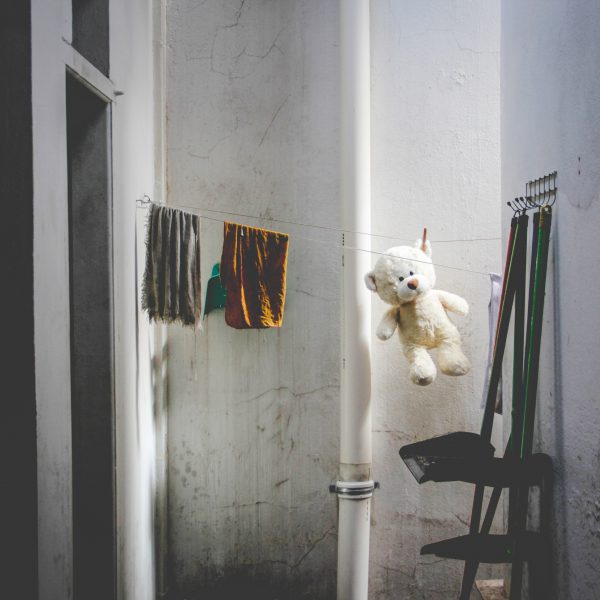Respectful relationships education must start early to tackle gender-based violence

There is a widespread consensus that gender-based violence is both everyone’s business and a human rights issue.
As of 23 April 2024, 25 women have died of gender-based violence by someone they know or someone they have been in a relationship with; 11 more than this time last year, translating to two women dying every nine days.
People of all ages, genders, sexualities, abilities, and cultural and ethnic backgrounds have taken to the streets across Australia to call for an end to gender-based violence, something Australian Prime Minister Anthony Albanese has stressed is a “national crisis”.
The Australian Federal Government has committed several billion dollars over the next few years to combat immediate and long-term needs such as diverse programs supporting victim-survivors escaping violence, including diverse measures tackling online misogyny, protecting children from harmful online content, and research.
The Government has also injected further millions of dollars through the 2024 Budget to support the National Plan to End Violence against Women and Children (2022-2032) – a whole-of-society and human rights inspired effort to tackle gender-based violence.
Part of this long-term preventative work, Early Childhood Education and Care (ECEC) settings have a large role to play in developing, implementing and evaluating “primary prevention activities designed by, and tailored for, the specific communities they are intended to support” including First Nations children, LGBTQIA+ children, children with disabilities, children from rural and remote settings, those from culturally and linguistically diverse backgrounds, and promote respectful relationships “between people of all genders, in all contexts” (p. 105-106).
The Early Years Learning Framework (EYLF) currently guides Australian ECEC settings through sets of child-rights principles, practices and learning outcomes rooted in theories aligned with “feminist and post-structuralist theories that offer insights into issues of power, equity and social justice” (p. 13). As gender inequity and gender stereotyping are at the heart of gender-based violence, this framework offers a guide to powerfully tackle matters concerning respectful relationships, consent, and body safety awareness in a nuanced, delicate and age-appropriate way.
A number of whole-of-setting and human rights inspired approaches tackling gender-based violence are already in place, and being successfully implemented in Australian ECEC settings, including:
1) Start Health’s Being Equal Pilot Program: Stories of Change;
2) The Learn to Include books and The Anti-Bias Approach in Early Childhood;
3) The City of Darebin’s Creating Gender Equity in the Early Years: A Resource for Local Government.
This last resource has been evaluated as having contributed to significant shifts in teacher knowledge, attitudes and beliefs to support the inclusion of gender equity in early childhood teaching.
As academics committed to this national call, the authors of this piece have investigated how early childhood educators perceive early learning environments as places for equity and social justice.
Findings from our research show that educators know that they have agency to support children through developing a culture of acceptance, inclusion, and belonging (positive sense of identity), and stand ready to empower young learners, including through the use of gender-affirming picture books.
Our work also shows that ECEC educators’ values often align with anti-bias sentiments, challenging stereotypes, and the status quo, including that concerning gender, where they negatively affect the children and those around them.
Our findings also showcase how a small group of early childhood educators revealed that gender-based violence was evident through the stereotyping and application of gender norms occurring during children’s play.
For example, dress up corner commentary proclaiming that “boys don’t wear those clothes” and “they are girl’s clothes” was shared, along with stories of parents requesting their child not to dress in clothing associated with a gender other than that assumed of their child suggesting “fairy wings are for girls”.
Children thrive and develop when they feel safe and unthreatened in their surroundings. Increased educator knowledge around gender-based violence in the early years supports the creation of safe environments to foster young children’s learning and development.
Research has unearthed the importance of developing respectful relationships and enabling child voices as avenues for educators to lessen gender-based violence in ECEC settings; collectively playing a key role in supporting children’s opportunities and abilities to confidently determine their own interests and preferences.
Similarly, an experimental study in Taiwan through “exposure to counter-stereotypical information” concludes that “cognitive-based interventions, such as a gender equality curriculum, have the potential to break gender stereotypes in kindergarten children” (p.1). Further, a study in Greece exposed kindergarten children to counter stereotypical professional role models using audio visual means, with significant effectiveness in shifting kindergarten children’s perceptions for half of the professions included in the study.
In our own research, social justice was perceived by ECEC educators in rural and remote communities as being discovered through interactions and relationships in response to fortuitous moments throughout the everyday life of the early learning place, rather than being about curriculum content or a concept taught intentionally.
Knowledge attained within the ECEC educators’ initial teacher education degrees and how it transmits into teaching practice was not acknowledged by participants. Reported in relevant literature early childhood initial teacher education programs offering opportunities for raising awareness of gender-based violence moves towards furnishing educators with understandings to counter the varied challenges that may arise in creating safe environments for young children.
Australia has committed to implement all appropriate measures to ensure that the rights of the child are protected and defended in terms of who they are, and their significance in the world, without distinction of any kind.
Indeed, the National Quality Standard and the EYLF recognise, too, that children have a right to participate in inclusive and safe education and care environments, regardless of their background, strengths, gender, sexuality, family structure, capabilities, or diverse ways of doing and being.
In the ECEC environment, allowing a child to develop who they are as a person is crucial in enabling that child to feel valued as a human being. Despite national adherence to declarations and law, and as stressed by the National Children’s Commissioner discrimination, harassment and abuse can be experienced in early childhood services by children who are, or assumed to be, part of sexuality and/or gender diverse populations or born with variations in sex characteristics.
We expect the Australian Government to invest in funded primary prevention initiatives in ECEC settings in all its jurisdictions to ALL children and their families, especially those whose rights are not adequately protected – including, First Nations children, LGBTQIA+ children, children with disabilities, children from rural and remote settings, and those from culturally and linguistically diverse backgrounds – to prevent and address gender-based violence, harassment, bullying and harms.
We support a re-examination of, and change to, any current practices in ECEC settings across Australian jurisdictions which do not actively engage in the call that gender equity and gender-based violence is everyone’s business and a human rights issue. The Government’s whole-of-society work to address gender bias, must also include a critical self-reflection concerning the inherent gender inequalities and gender stereotyping permeating the entire ECEC industry, including non-adequate salaries with fewer than 3 per cent of the workforce being men.
Last, we advocate for TAFE and ECEC Education programs across tertiary institutions and leaders in current ECEC settings to be mandated to include skill, competence and confidence development for ECEC pre- and in-service educators to develop, implement, and evaluate whole-of-setting primary prevention initiatives and activities that seek to, in a child-rights and human rights education approach, tackle gender stereotyping, gender inequity, and gender-based violence across intersecting identities and demographics such as the initiatives by City of Darebin through their Creating Gender Equity in the Early Years: A Resource for Local Government.
More about the authors:
Annette Brömdal is an Associate Professor at the University of Southern Queensland with research interests in the areas of bodies, gender, and sexuality within and outside of education.
Vicki Christopher is a Lecturer at the University of Southern Queensland with research interests in early childhood education, social justice, children’s voices, and natural learning environments.
Nicole Green is a Lecturer at the University of Southern Queensland and inquires with children, families and communities about the ways in which they perceive and experience the conceptualisation and enactment of curriculum in early learning environments.
Michelle Turner is a Lecturer at the University of Southern Queensland with research interests in early childhood education, social justice and inclusion, teacher and student wellbeing, and professional development of educators.
Yvonne Findlay is a Lecturer at the University of Southern Queensland and her main interest is in the field of human rights and their application at all levels of the education system.
Popular

Policy
Quality
Practice
Provider
Research
Workforce
ECEC services to close early for mandatory child safety training under national reforms
2025-12-01 07:10:09
by Fiona Alston

Quality
Policy
Practice
Provider
Workforce
Growth restrictions and enhanced oversight imposed on Affinity Education Group in NSW
2025-12-01 07:30:29
by Fiona Alston

Workforce
Events News
Policy
Practice
Provider
Quality
Gold Walkley Award win for childcare investigation places national spotlight on safety and accountability in ECEC
2025-12-02 07:30:34
by Fiona Alston
















